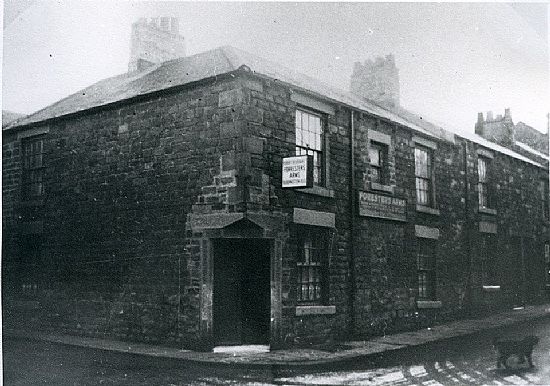The Spike
BLAYDON HAUGHS – DOWN YOUR WAY – THE SPIKE
First published in Blaydon Crossroads, October 1961
“There’s nothing here now. It’s all changed”. You hear that every time you talk to people on the Spike. In some ways it’s all too true. Just two short streets and even these will soon be gone. Cowen Street and Patterson Street will have gone like others, Pioneer Street, Townley Street and Victoria Street the homes shovelled up into the contractor’s wagons and the people moved into council houses at Winlaton.
QUEEN OF HAUGHS
I talked to Mrs. Theresa Dixon the oldest of three generations of Tressa’s and the oldest woman on the Haughs. She wasn’t born here, Mrs. Dixon’s a Lancashire lass, but she’s lived on the Spike for 64 years and I’ve heard her called the ‘Queen of the Haughs’. At 82 her eyes are as bright as ever and she can tell you what life was like when she was a young bride. “ We wanted for nothing then”. There were shops that supplied all you needed and there was never any call to go into Blaydon. There was a ferry across the river and the Blaydon men fished for salmon this side of the railway bridge. The ‘band boats’ took the people down the river to Shields and upstream to Ryton Willows. “By it was grand down here” said Mrs. Dixon.“ Even with the blacking factory, the bottle house and all the rest of them?” I asked. “Yes, old Dr. Morrison said there was no healthier place to live”. Possibly the germs were all killed off before they could get to the people.
As I left No. 8 Cowen Street, Mrs.Dixon called out from her chair by the fire “ We even had a chip shop then “.
FACTORY HANDYMAN
Billy Page, seventy-one but looking very much less echoed all that Mrs. Dixon had told me. I talked to him on the bit of waste ground, “ Mr. John Pickering, another old man leases it you know”, behind his house in Patterson Street. Billy, he didn’t like to be called Mr.Page – had been a handyman for forty years at Patterson’s Foundry. He’d obviously enjoyed every day of his working life and every day on the Spike. “ I don’t want to leave “, he said as we as we looked at the tumble down shacks and derelict fences. Just to look at the Haughs there doesn’t seem much to stay for, but when you hear the people talk you know there’s much more to it than that.
For young people there is no future on the Haughs but for the older ones it’s home, a place full of memories and not just sentimental ones either. “ We were a big family” as Billy page put it. “ There’s none of my neighbours left now”, Mrs. Dixon commented.
Is anyone to blame for this state of affairs? Has the Council killed the Haughs? Or is the ebb of life away from the Spike due to something other than the demolition gangs? It is very doubtful whether things would have stayed the same even without the bull dozers. It takes more than a level-crossing to stop the progress of the Twentieth Century.It was held up for longer here than in most places. It came later to the Haughs, but it did come. The cinema, the motor car, holidays with pay, television – these, the symbols of the Twentieth Century undermined the Haughs.
Read more about Blaydon Haughs ( The Spike ) on Roly Veitch’s own website www.rolyveitch.20m.com

